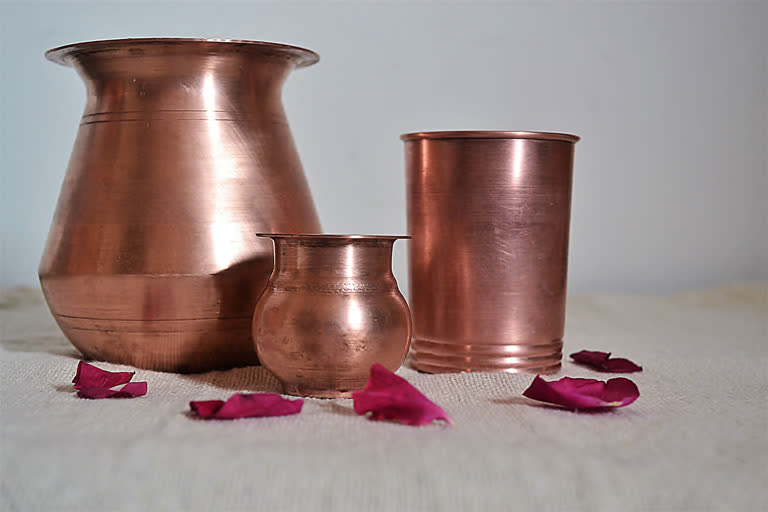Copper is one metal which is being used from ancient times in our country, it is a micronutrient, which is important for several bodily functions. Excess of Copper can cause problems where the deficiency of copper is extremely rare. From copper to brass to steel to earthen wear, we use different types of vessels to cook. Human first used pottery made from clay. During the last two centuries, we have shifted to steel, aluminium, copper, glass, ceramic and even plastic vessels to cook food. We eulogize the use of copper utensils for many health benefits.
Copper cookware:
Copper vessels are highly praised and were considered a thing of highly-priced property in ancient India. Copper was discovered and separated from its minerals from mines in ancient India. Khetri copper mines in Rajasthan extracted copper for several centuries in ancient India. Copper is a good conductor of heat, so it easy to control cooking temperatures. Brass, made from copper and zinc, is less commonly used for cookware. Bronze is an alloy of copper and tin.
Small amounts of copper are beneficial to our health. However, large amounts in a few doses or over a short period can be poisonous. Copper toxicity can result from long-term exposure to high levels of copper through contaminated food or water. Certain genetic disorders, such as Wilson's disease, can also lead to copper toxicity. Symptoms of copper toxicity…
- Diarrhoea
- Headache
- Kidney failure
- Vomiting of blood
- The cornea of the eyes turning into copper colour.
Also Read:Surprising benefits of wearing 'Copper Ring'
Therefore, copper and brass pans are coated with another metal that prevents the copper from coming into contact with food. Small amounts of this coating can be dissolved by food, especially acidic food when cooked or stored for long periods. Coated copper cookware can lose its protective layer if scoured. In the past, tin and nickel were sometimes used in coating copper cookware. Tin used as the top layer in copper vessels makes a special layer like glue. Tin and copper mix up well.
Cooking in brass or copper utensils is not advisable because salt or iodine present in food easily reacts with copper and releases more copper into food, which is not desirable. Eating on a brass plate is ok but cooking in brass is not desirable. They are heavy to lift.
Common signs and symptoms of copper deficiency are very rare. However, if it happens the following symptoms are manifested.
- Fatigue and weakness
- Brittle bones
- Weak memory
- Difficulty in walking
- Increased cold sensitivity
- Pale skin
- Premature grey hair
- Loss of vision
Copper vessels can effectively counter the bacteria in the storage of food. Less than 100 mg of copper is sufficient for the body, which is available in normal food. The liver is the centre of copper metabolism. It assists in manufacturing red blood cells. Copper helps bones, blood vessels, nerves, and immune function, and contributes to iron absorption. Good quantities of copper are available in nuts, seeds, mushrooms and liver (meat).
